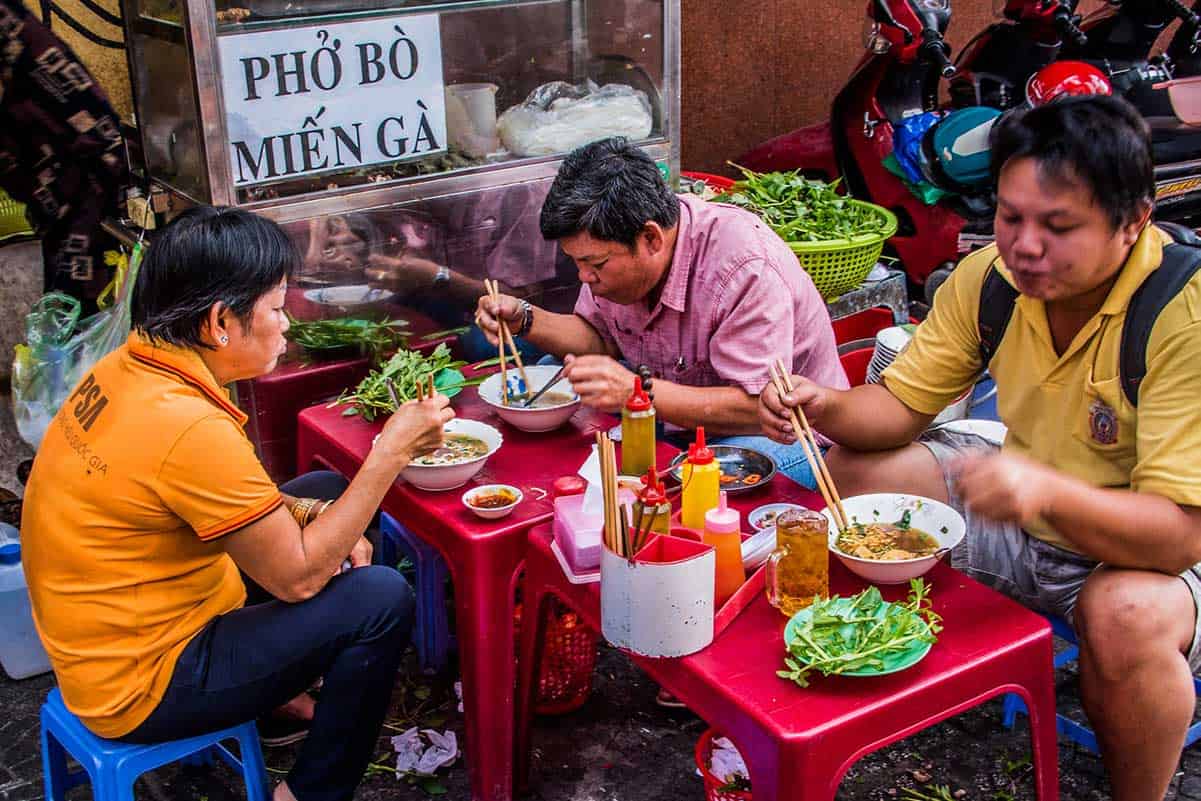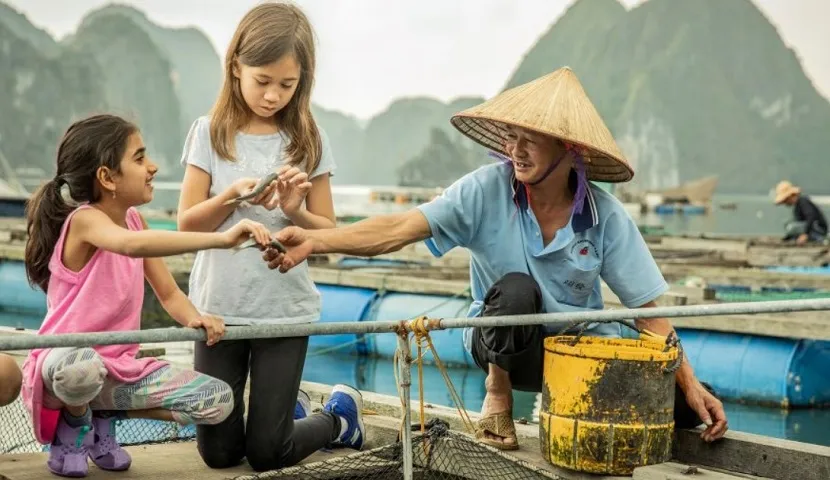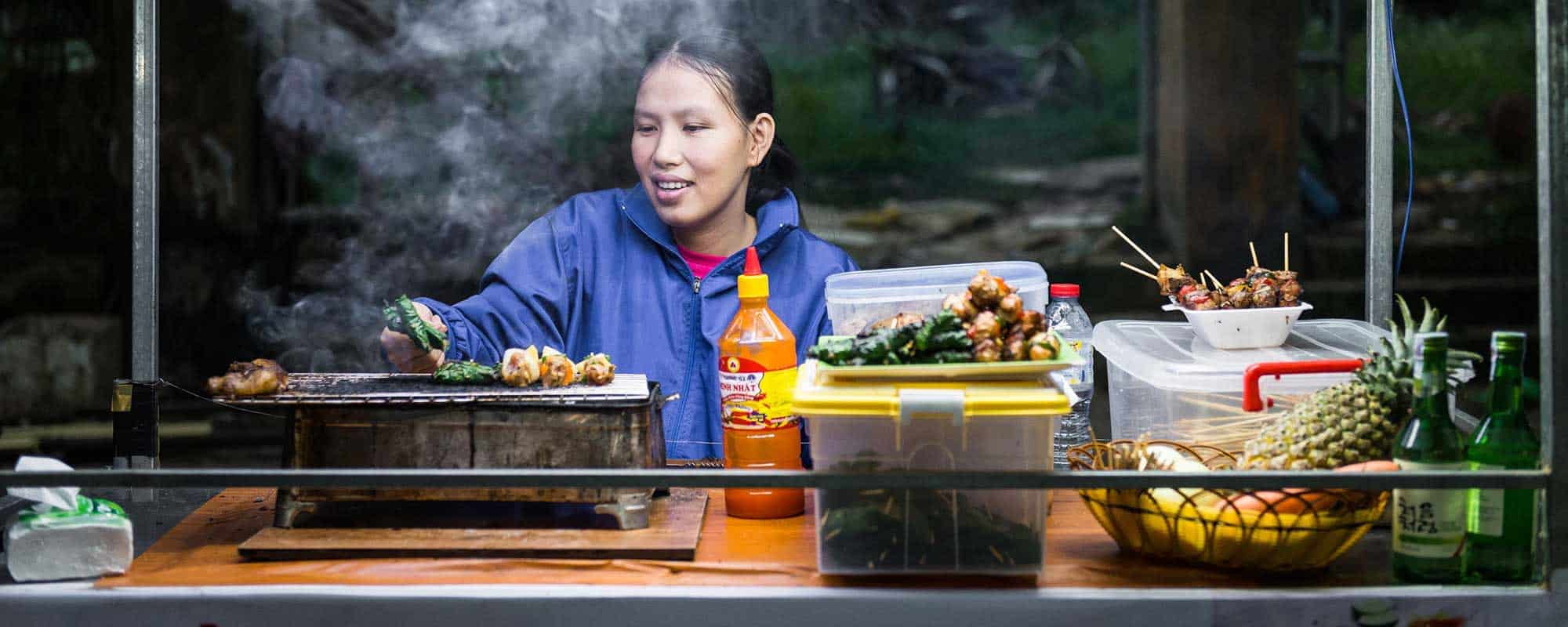Vietnam is a country known for its vibrant and diverse cuisine, with a rich history of culinary traditions. However, when it comes to food safety, there are some important factors to consider. The country has made significant progress in recent years in improving food safety standards, but there are still some challenges that travelers should be aware of.
One of the main concerns is the use of pesticides and chemicals in food production, which can pose a risk to consumers. Additionally, poor hygiene practices in some establishments can also contribute to foodborne illnesses. It’s important for visitors to understand these risks and take precautions to ensure their safety while enjoying the delicious Vietnamese cuisine.
Vietnam’s food safety regulations are constantly evolving, and the government has been working to improve standards and enforcement. However, it’s still important for travelers to be vigilant and take steps to protect themselves from potential foodborne illnesses. This includes being mindful of where and what you eat, as well as practicing good hygiene habits.
By understanding the current state of food safety in Vietnam, visitors can make informed decisions about where and what to eat, and take steps to minimize their risk of getting sick.
Tips for Choosing Safe Food and Drinks
When it comes to choosing safe food and drinks in Vietnam, there are several tips that travelers can follow to minimize their risk of foodborne illnesses. One of the most important things to consider is the cleanliness of the establishment. Look for restaurants and street vendors that appear clean and well-maintained, as this can be a good indicator of their commitment to food safety.
Additionally, it’s important to pay attention to how the food is prepared and handled. Avoid eating raw or undercooked meat and seafood, as well as dishes that have been sitting out at room temperature for extended periods of time.
Another important tip for choosing safe food and drinks in Vietnam is to be mindful of where you’re eating. While street food can be a highlight of any trip to Vietnam, it’s important to be selective about which vendors you choose.
Look for popular vendors with a high turnover of customers, as this can be a sign of fresh and safe food. Additionally, consider asking locals or other travelers for recommendations on where to eat. By being selective about where and what you eat, you can minimize your risk of getting sick from contaminated food or drinks.
Common Foodborne Illnesses to Avoid
There are several common foodborne illnesses that travelers should be aware of when visiting Vietnam. One of the most prevalent is traveler’s diarrhea, which is typically caused by consuming contaminated food or water. Symptoms can include stomach cramps, nausea, and diarrhea, and it can be quite unpleasant. Another common illness is hepatitis A, which is transmitted through contaminated food and water. It’s important for travelers to be aware of these risks and take precautions to avoid getting sick.
In addition to traveler’s diarrhea and hepatitis A, there are several other foodborne illnesses that travelers should be mindful of. These include typhoid fever, cholera, and parasitic infections such as giardiasis. While the risk of contracting these illnesses can be minimized by following food safety guidelines and practicing good hygiene habits, it’s still important for travelers to be aware of the potential risks and take steps to protect themselves.
Navigating Local Cuisine Safely
Navigating local cuisine safely in Vietnam involves being mindful of where and what you eat, as well as practicing good hygiene habits. One important consideration is the use of fresh ingredients in dishes, as this can be a good indicator of the overall quality and safety of the food. Look for dishes that are made with fresh vegetables, herbs, and meats, as these are less likely to be contaminated.
Additionally, it’s important to be mindful of how the food is prepared and handled. Avoid dishes that have been sitting out at room temperature for extended periods of time, as this can increase the risk of contamination.
Another important aspect of navigating local cuisine safely in Vietnam is being mindful of portion sizes. While it can be tempting to try a wide variety of dishes, it’s important to avoid overeating, as this can increase the risk of getting sick.
Additionally, consider sharing dishes with others so that you can sample a variety of foods without overindulging. By being mindful of where and what you eat, as well as practicing good portion control, you can minimize your risk of getting sick from contaminated food.
Street Food Safety
Street food is a highlight of any trip to Vietnam, offering a wide variety of delicious and affordable dishes. However, it’s important for travelers to be mindful of street food safety in order to minimize their risk of getting sick.
One important consideration is the cleanliness of the vendor’s setup, as this can be a good indicator of their commitment to food safety. Look for vendors that appear clean and well-maintained, with proper handwashing facilities and a clean cooking area.
Another important aspect of street food safety is being selective about which vendors you choose. Look for popular vendors with a high turnover of customers, as this can be a sign of fresh and safe food. Additionally, consider asking locals or other travelers for recommendations on where to eat. By being selective about which vendors you choose, you can minimize your risk of getting sick from contaminated street food.
Hygiene Practices to Look for
When it comes to ensuring food safety in Vietnam, it’s important for travelers to be mindful of hygiene practices in restaurants and street vendors.
One important aspect to look for is proper handwashing facilities, as this is a key component of preventing the spread of foodborne illnesses. Look for vendors that have access to clean water and soap for handwashing, as well as a designated area for drying hands.
Another important hygiene practice to look for is the use of clean utensils and serving dishes. Avoid eating at establishments that use dirty or visibly unclean utensils and dishes, as this can increase the risk of contamination.
Additionally, be mindful of how the food is prepared and handled, and avoid dishes that have been sitting out at room temperature for extended periods of time. By being mindful of hygiene practices in restaurants and street vendors, travelers can minimize their risk of getting sick from contaminated food.
What to Avoid in Vietnam’s Food and Drink Scene
While there are many delicious dishes to try in Vietnam, there are also some things that travelers should avoid in order to minimize their risk of getting sick.
One important consideration is tap water, which should be avoided due to the risk of contamination. Instead, opt for bottled water or drinks that have been boiled or properly treated. Additionally, it’s important to be mindful of ice in drinks, as this can also pose a risk if it has been made from tap water.
Another thing to avoid in Vietnam’s food and drink scene is raw or undercooked meat and seafood. While dishes such as pho and banh mi are popular choices for travelers, it’s important to ensure that the meat and seafood are fully cooked in order to minimize the risk of foodborne illnesses.
Additionally, be mindful of where you’re eating and choose establishments that appear clean and well-maintained. By being selective about where and what you eat, as well as avoiding tap water and raw or undercooked meat and seafood, travelers can minimize their risk of getting sick from contaminated food and drinks.
Conclusion
In conclusion, while Vietnam offers a wide variety of delicious cuisine, it’s important for travelers to be mindful of food safety in order to minimize their risk of getting sick from contaminated food and drinks. By understanding the current state of food safety in Vietnam and following tips for choosing safe food and drinks, travelers can enjoy the vibrant culinary scene while staying healthy during their trip.
Additionally, being selective about where and what you eat, practicing good hygiene habits, and avoiding tap water and raw or undercooked meat and seafood can further minimize the risk of foodborne illnesses. With these precautions in mind, travelers can fully enjoy all that Vietnam has to offer in terms of its rich culinary traditions while staying safe and healthy throughout their journey.
Originally posted 2024-06-01 05:25:50.




